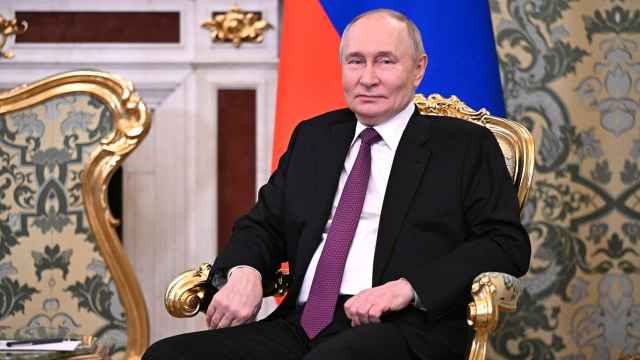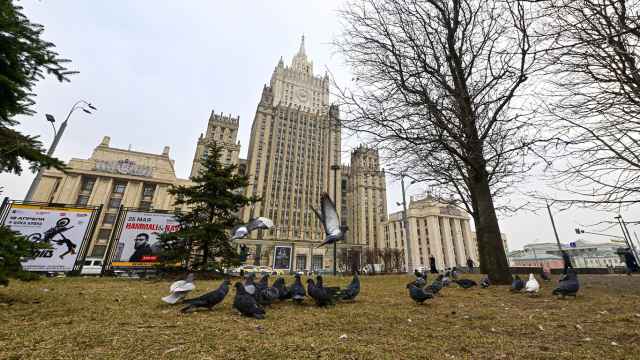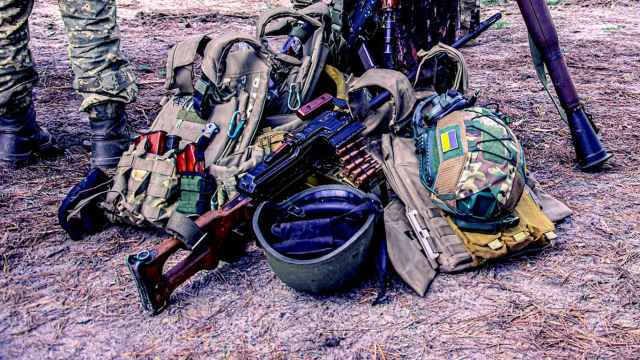The prime minister's spokeswoman on Monday dispelled a rumor that Alexander Bosykh, a controversial nationalist best known for punching a woman in the face, would head a state commission for interethnic youth relations.
Prime Minister Dmitry Medvedev "has never had and will never have" any plans to appoint Bosykh to that position, spokeswoman Natalya Timakova Ekho Moskvy radio.
Bosykh, 33, is youth policy director at the Congress of Russian Communities, a nationalist political group. He is also an aide to Deputy Prime Minister Dmitry Rogozin.
In March, Bosykh was photographed punching a woman in the face outside a Moscow courthouse during a protest against the detention of punk band Pussy Riot.
Izvestia Friday that Bosykh might head the interethnic youth commission under the Federal Agency for Youth Affairs.
The commission will "establish contacts" in Russia's ethnic republics and first convene in Chechnya and Dagestan, Izvestia reported.
It will also help determine a new direction for its parent agency, likely to get a sizable budget cut following the departure of its leader, Vasily Yakemenko, Izvestia reported.
The commission is tasked with bringing youth groups and the annual Seliger summer camp, which Yakemenko had previously run as a personal fiefdom, more firmly under government control.
Izvestia cited a source close to the Kremlin and a United Russia lawmaker in the State Duma.
A Message from The Moscow Times:
Dear readers,
We are facing unprecedented challenges. Russia's Prosecutor General's Office has designated The Moscow Times as an "undesirable" organization, criminalizing our work and putting our staff at risk of prosecution. This follows our earlier unjust labeling as a "foreign agent."
These actions are direct attempts to silence independent journalism in Russia. The authorities claim our work "discredits the decisions of the Russian leadership." We see things differently: we strive to provide accurate, unbiased reporting on Russia.
We, the journalists of The Moscow Times, refuse to be silenced. But to continue our work, we need your help.
Your support, no matter how small, makes a world of difference. If you can, please support us monthly starting from just $2. It's quick to set up, and every contribution makes a significant impact.
By supporting The Moscow Times, you're defending open, independent journalism in the face of repression. Thank you for standing with us.
Remind me later.





